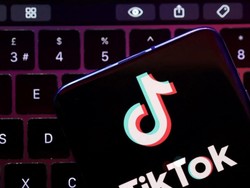Social media platforms have become the battlegrounds of global geopolitics. The recent announcement by the United States regarding its intention to block TikTok has sent shockwaves across the digital sphere. As the U.S. prepares to enact legislation that could effectively shut down TikTok within its borders, many around the world are left wondering about the implications of such a move, including in Indonesia.

TikTok, a Chinese-owned social media platform, has garnered immense popularity worldwide, particularly among the younger demographic. Its short-form videos, often showcasing creative content ranging from lip-syncing to comedy sketches, have captivated millions of users globally. However, concerns over data privacy and national security have plagued TikTok, leading to its banishment in certain countries, most notably India.
Now, with the United States contemplating a similar ban, the implications extend far beyond American borders. Indonesia, a nation with a significant presence on TikTok, finds itself at a crossroads regarding how to respond to this development. The Indonesian Ministry of Communication and Information Technology (Kominfo) has thus far refrained from intervening in the matter, opting instead to observe how events unfold.
The potential ban on TikTok by the United States raises several key questions and considerations for Indonesia. Firstly, what impact would such a ban have on Indonesian TikTok users and content creators? With millions of Indonesians actively engaging with the platform, a ban could disrupt the digital landscape and potentially stifle creative expression among the youth.
Moreover, Indonesia-China relations could come into play, given TikTok's Chinese ownership. The geopolitical tensions between the United States and China have already reverberated across various sectors, including technology and trade. How Indonesia navigates its stance on TikTok could have implications for its diplomatic relations with both nations.
Furthermore, the issue touches upon broader themes of digital sovereignty and data governance. As countries grapple with the challenges posed by digital platforms operating across borders, questions arise regarding who has the authority to regulate these platforms and safeguard user data. Indonesia, like many other nations, faces the task of balancing technological innovation with national security concerns.
Additionally, the potential ban on TikTok underscores the importance of fostering indigenous digital platforms and tech ecosystems. Indonesia boasts a burgeoning tech scene, with homegrown startups making strides in various sectors. This moment presents an opportunity for Indonesia to bolster its domestic digital infrastructure and support local alternatives to TikTok.
Ultimately, the TikTok dilemma serves as a microcosm of the broader complexities inherent in the digital age. It highlights the interconnectedness of nations in cyberspace and the challenges of reconciling competing interests in a borderless digital world. As Indonesia observes developments in the United States, it must chart a course that safeguards its national interests while upholding principles of innovation, freedom of expression, and digital sovereignty. support our hasil quick count partai 2024
In conclusion, the potential U.S. ban on TikTok raises pertinent questions for Indonesia regarding its implications on users, diplomatic relations, digital sovereignty, and the local tech ecosystem. How Indonesia chooses to navigate this complex landscape will undoubtedly shape its digital future and influence global perceptions of its stance on emerging technologies. As the world watches, Indonesia stands at a pivotal moment in its digital journey, poised to make decisions that will resonate far beyond its shores.



